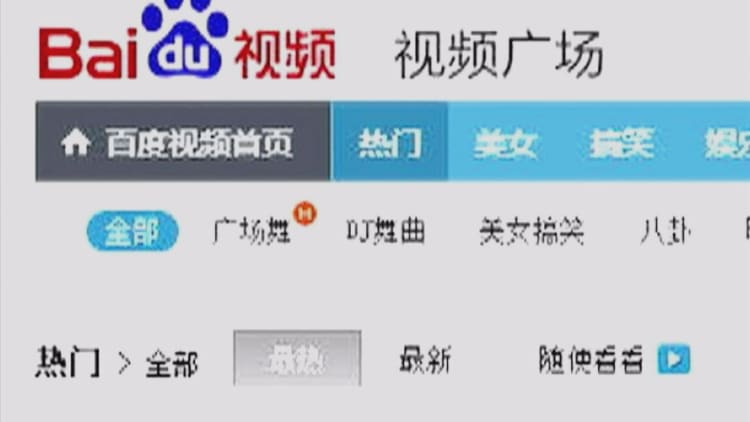
Internet search giant Baidu could face stiff penalties and health-care-industry digital ads could be subject to tougher controls in the aftermath of a university student's death, according to analysts.
Shaanxi computer science student Wei Zexi, 21, suffered from a rare form of cancer and sought experimental medical treatment at a hospital in Beijing that topped a Baidu search result. He chronicled his ineffective treatment online, and his death last month prompted a public outcry.
The analysts said on Tuesday that they expected Baidu, which has more than 70 per cent revenue share of China's online search market, to receive more than a cash fine if found guilty of misconduct as a publisher of digital advertising or for violating certain regulations.
"Violations of China's advertising laws and regulations are subject to penalties, and even the potential termination of advertising operations or removal of a business licence," Morningstar senior equity analyst Marie Sun said in a report.
The Cyberspace Administration of China, the State Administration for Industry and Commerce, and the National Health and Family Planning Commission on Monday formed a task force to investigate Baidu following Wei's death.

Nomura analyst Shi Jialong said in a report that to appease the public "the task force could convict Baidu of wrongdoing at the end of its investigation and suggest certain punishments".
Paul Haswell, a partner at international law firm Pinsent Masons, said "a ban on Baidu's health-care-related advertising, or at least [enforcement of] tighter controls on such advertising" would serve "as a logical and relatively balanced" penalty.
"It is entirely possible that as a result of this case more stringent controls will be placed over internet-based advertising , requiring a licence or approval for each and every advertisement," he said.
"China has the political climate and technological capabilities to make that happen."
But Gartner analyst Sandy Shen said she did not think the government would impose any ban on advertising for the health-care sector.
"The government may issue some guidelines on health-care marketing and advertising, which is better than nothing," Shen said.
"It is down to the ad provider and regulator to determine how they curate the search results and mark ads clearly, rather than mislead the public to think these are the most relevant results."
Eugene Low, a partner at the Hong Kong office of international law firm Hogan Lovells, said draft legislation on the mainland "requires the search engine to indicate very clearly which search results are paid".
More from South China Morning Post:
How Hong Kong crowdfunders got burned, and why they're still investing
Tencent executive earned more than HK$274 million in annual salary, filings reveal – leaving even Canning Fok in the shade
Review: Xiaomi Mi 5 – good-value smartphone and tougher than you'd think
The government probe, meanwhile, has had a negative impact on Baidu's Nasdaq-listed shares, which were down 7.92 per cent to US$1178.91 in trading in the United States on Monday.
About US$5.3 billion was wiped off the company's book value after news of the investigation broke.
Companies that are part of the so-called Putian network, Fujian-based businesses which make up some of Baidu's biggest health-care advertisers, were also affected. These include Hong Kong-listed Harmonicare Medical Holding, which operates 12 private hospitals on the mainland. Its share price slipped 3.17 per cent to close at HK$5.8, while Hua Xia Healthcare tumbled 13.12 per cent to finish at HK53 cents.


